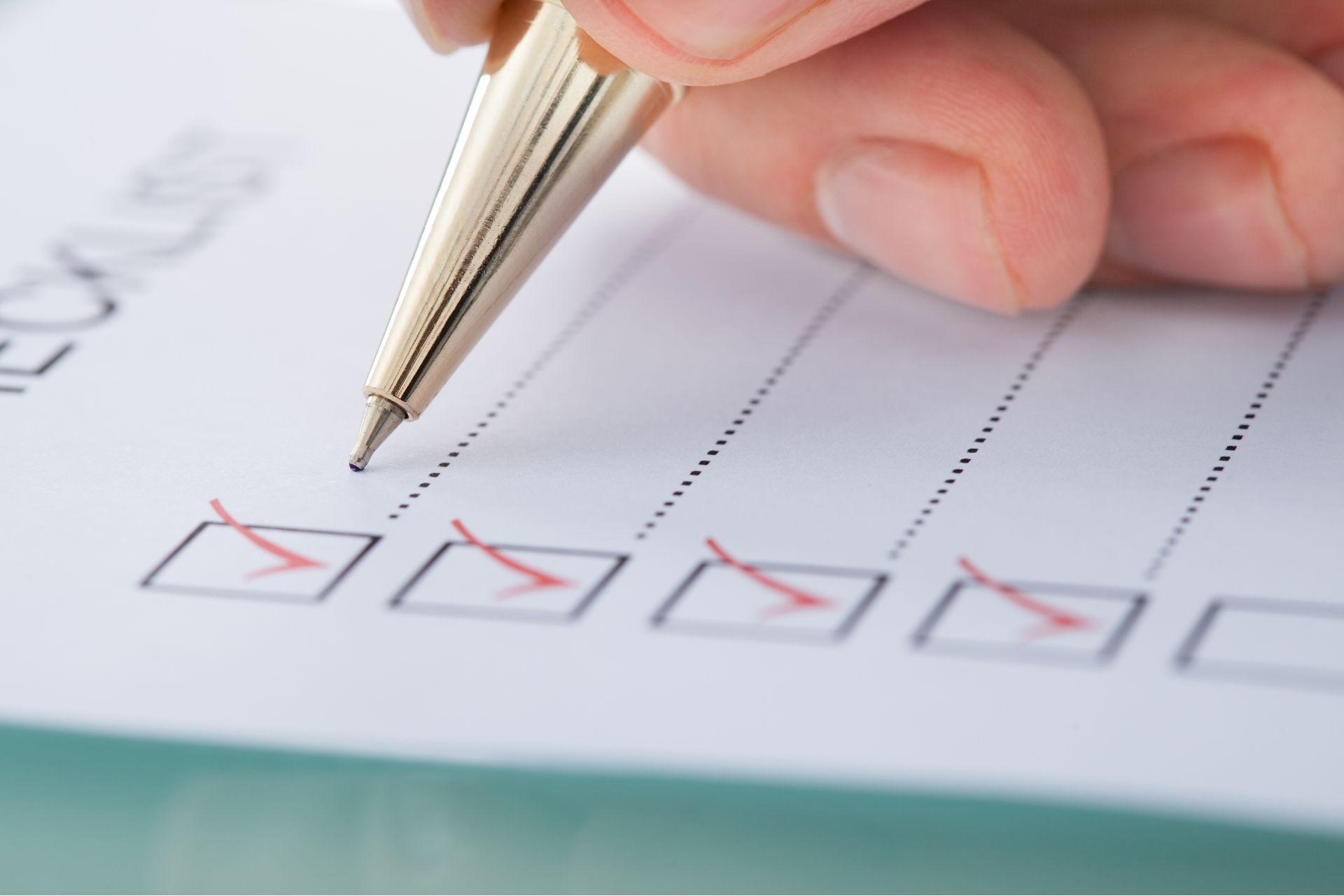If you’re planning to buy a home or rent in Victoria, this is the only guide you need. We’ve put together best practices, tips, considerations, and frequently asked questions (with answers) related to buying, renting, and moving to your new home.
So, without further ado, here’s a full guide for home buyers and renters in Victoria, Australia.
The Victoria Property Market in a Nutshell

It helps to know where the property market is before buying a home or renting in Victoria. One of the biggest hurdles you’ll need to face before making the big move is finding a house to buy or rent.
And it’s no secret that finding a place to live is not as easy as most people think. For one, there has been a steady increase in median house prices. Forecasts show that Melbourne’s house prices will increase by $110,000 by mid-2026. Current median prices are at $1.04 million per house.
Additionally, the amount of work needed to find a house to buy or rent can be highly difficult for Victorian hopefuls. House purchases have all these complex steps and processes. And if you’re renting, you’ll likely compete with five to ten other people to get a lease from a landlord.
Is It Worth Moving to Victoria, Australia?

All that to say, it’s not impossible to buy or rent a house in Australia— that’s for sure. Additionally, there’s a reason why people will go to great lengths to secure a home in Melbourne, Altona, or anywhere else in the Victoria region. Some of the reasons why individuals and families move to Victoria are:
1) Economic Opportunities
Victoria, and particularly Melbourne, its capital, is known for a strong and dynamic economy. It offers numerous job opportunities in various sectors such as finance, manufacturing, IT, and education. The state's economy attracts professionals from around the world.
2) Education
Home to some of Australia's most prestigious universitiesVictoria is a hub for international students seeking high-quality education. Some of Victoria’s notable unis include:
- University of Melbourne
- Monash University
- RMIT University
- Deakin University
- La Trobe University
- Swinburne University of Technology
- Victoria University
- And many more!
4) Healthcare
Victoria is renowned for its healthcare system, which is considered one of the best in the world. Victorians often have access to some of the best health services and facilities available to Australians.
5) Lifestyle and Culture
Many organisations and visitors consider Melbourne as one of the world's most livable cities. As of 2023, it ranks as the 3rd most livable city in the world and first in Australia (Global Liveability Index).
The city boasts a vibrant cultural scene, with numerous cafes, restaurants, galleries, and theaters, as well as sports events. The state's diverse population contributes to a multicultural environment where various festivals and cultural events are celebrated.
6) Natural Beauty and Environment
Victoria offers all sorts of natural landscapes: scenic beaches along the Great Ocean Road to the mountain ranges and national parks, among many tohers. Access to such diversity provides residents and visitors with numerous outdoor and recreational activities.
7) Transport Infrastructure
The state has a well-developed public transport system, especially in Melbourne. Accordingly, you’ll find it easier to commute and enjoy the city and surrounding areas.
8) Climate
Victoria experiences a temperate climate, which is milder compared to other Australian states. This climate is appealing to those who prefer cooler temperatures and seasonal changes.
9) Safety and Stability
Australia, and Victoria in particular, is known for its high level of safety and political stability.
Should I Buy or Rent in Victoria?

If you’re moving to Victoria, you’ll probably ask if it’s better to buy or rent a property. There’s no definite answer to this question. It will always depend on your context and considerations. But, when deciding whether to buy or rent a home in Victoria, you need to think about these factors:
- Length of stay — Buying may be better if you plan to stay for more than two or three years.
- Flexibility — Renting may be better if you want flexibility or a short-term solution.
- Maintenance — Landlords are responsible for major repairs, so your living costs may be stable.
- Security — Buying a home can provide stability, which may be important if you have children, pets, or elderly parents.
- Emotional attachment — Buying a home can create an emotional attachment.
- Control — You have more control over the property and can make changes and improvements as you see fit.
- Potential tax benefits — You may be able to deduct mortgage interest and property taxes from your taxes.
If you’re planning to stay for the long term and you want more control over home renovations and improvements, buying is definitely the best option. Recent reports also indicate that more than 80% of houses are estimated to be cheaper to buy than rent.
Still, you need to think about unforeseen costs like property tax, maintenance costs, and opportunity costs you lose by planting roots. There’s never a one-size-fits-all answer to these questions. But, hopefully, these guiding principles can help you find the option that suits your needs and context best.
In the next parts of this article, we’ll share some tips and guides to help you find the best houses to buy or rent. Keep reading if you’d like to find the most suitable property for your context and needs.
Tips and Guides When Buying a House
If you’re planning to buy a house, these insights and tips should help you. Read on.
How to Find a House that Suits You Best

Finding the perfect house that suits your needs, lifestyle, and budget might not always be a straightforward decision. But it’s one that you should plan carefully given the magnitude and impact it will have on your life for many years to come.
Taking on a systematic approach really helps. That way, you can simplify the process and make an informed decision. Here’s how to get started:
1. Set Your Budget
The first and foremost step in house hunting is to establish a realistic budget. You need to think about all sources of income and expenses to determine how much you can afford to spend on a new home.
Keep in mind that the house purchase will not be the only expense. You need to account for other accessrory costs, such as closing fees, building and pest inspection fees, property taxes, homeowners insurance, and maintenance expenses, among others.
One best practice is to first get pre-approval for a mortgage. That way, you have a clear idea of what you can afford. Pre-approval will also make your offer more attractive to sellers. Hire a mortgage broker to help you find and apply for home loans.
2. Write Down Your Non-negotiables
Before you start looking, think about what features are a must-have for your new home. These non-negotiables can range from the number of bedrooms and bathrooms to more specific needs like a home office, a large kitchen, or accessibility features.
Some questions you need to ask when writing down your non-negotiables include:
- What amenities would I like to add to the home?
- How many kids am I planning to have?
- How far can my home be from my office or my kid’s school?
- What type of home fits my lifestyle best?
- How much renovation am I willing to do?
- What are my long-term plans and how does this home fit into them?
Knowing what you can't live without will help you filter out unsuitable properties and focus on homes that truly meet your needs.
3. Land on the Right Location
The location of your new home impacts will have massive impacts on travel times, daily commute, and also your overall lifestyle.
Location also determinse the value of your property over time. If you buy a house in the city center, you’ll likely have to pay more per square foot. If you get a property in an up-and-coming area, you might get more property value increase over time.
You also need to consider practical location factors such as proximity to work, quality of local schools, access to public transportation, and the overall safety and appeal of the neighborhood. It's also worth exploring future development plans for the area, as these can affect your quality of life.
4. Plan for Future Changes
Think about how your needs might evolve in the coming years. For example, if you plan to start a family, you might need extra bedrooms or a yard.
If you're nearing retirement, you might prefer a one-story house to avoid stairs. Anticipating future changes can help you choose a home that will serve you well for many years.
5. Arrange For a Home Inspection
Once you find a house that ticks all the boxes, you’ll start needing help from professionals. The first thing you’ll need to do is look for a professional building and pest inspection company before finalising the purchase.
An inspector will check the property for structural issues, electrical problems, plumbing leaks, and other potential concerns that could lead to costly repairs down the line. Don’t skip this step. It will save you from so many headaches and unpleasant surprises.
Following these steps can streamline your search for the perfect home and make a choice that suits your budget, needs, and lifestyle. Patience and due diligence are key to finding a house that feels like home.
A Step-by-Step Guide to the Home Buying Process

If you’re planning to buy a house, the steps can all get jumbled up in a huge messy mix. But it doesn’t have to be that way. Here's a simplified guide to help you through each stage:
1. Make a Plan for the Deposit and Look for Grants
Start by assessing your current financial situation and determine how much you can afford for a down payment. Research available homebuyer grants and assistance programs in your area, as these can significantly offset initial costs.
- Estimated Time: 6 months to several years
- Professionals Help Needed: Financial advisor or mortgage broker.
2. Choose a Mortgage and Get Pre-approved
Shop around for a mortgage that suits your needs. Consider the interest rates, loan terms, and any associated fees. Getting pre-approved will give you a better idea of what you can afford and strengthens your position when making an offer.
- Estimated Time: 1-4 weeks
- Professionals Help Needed: Mortgage broker (strongly recommended). They can help you compare different mortgage products and assist with the pre-approval process.
3. Start Shopping for a House
With your budget in mind, start looking for homes that meet your criteria. You can check online listings, talk to real estate agents, and attend open houses. Keep your list of non-negotiables handy to evaluate each property effectively.
- Estimated Time: 1-6 months (can vary widely)
- Professionals Help Needed: Real estate agent (recommended). They can provide valuable insights into the market, suggest listings that match your criteria, and help with scheduling viewings.
4. Schedule a Building and Pest Inspection
Once you've found a home you're interested in, arrange for a professional building and pest inspection. This step is crucial to uncover any hidden issues that could affect the property's value or lead to significant expenses down the line.
- Estimated Time: 1-2 weeks
- Professionals Help Needed: Building and pest inspector (essential). They assess the property's condition, looking for structural issues, pest infestations, and other potential problems.
5. Make an Offer
Based on your budget, the home's condition, and the market, make an informed offer. Be prepared for negotiation, and don't be afraid to walk away if the terms don't meet your needs.
- Estimated Time: 1-2 weeks
- Professionals Help Needed: Real estate agent (recommended). They can guide you on making a competitive offer, handle negotiations, and advise on any conditional terms to include.
6. Exchange Contracts and Pay the Deposit
Once the seller accepts your offer, you'll exchange contracts to make the agreement legally binding. At this point, you'll also have pay a deposit. Normally, the deposit will be around 20% of the purchase price.
- Estimated Time: 1-2 weeks
- Professionals Help Needed: Conveyancer or solicitor (essential). They handle the legal aspects of the purchase, including contract review, negotiation, and ensuring the property is legally transferred to you.
7. Settle on the Contract and Move In
The final step is to settle remaining purchase amount via a cash payment or a mortgage. Once that’s done, you officially become the home's owner. After settlement, you can move into your new home. We recommend hiring removalists to help you at this stage.
- Estimated Time: 4-8 weeks
- Professionals Help Needed: Conveyancer or solicitor, removalist (optional, but recommended for a smoother move), and house cleaner (Again, this isn’t required, but highly recommended for health and cleanliness reasons).
If you need more detailed information about the abovementioned professionals, you should check out more of our buyer’s guides below:
- Buyer’s Guide to Conveyancers
- Buyer’s Guide to Mortgage Brokers
- Buyer’s Guide to End of Lease Cleaners
- Buyer’s Guide to Building and Pest Inspections
- Buyer’s Guide to Removalists
How to Know How Much I Can Pay for a House

If you’re planning to take out a loan to buy a house, it’s best to have some foresight before committing to a home price. The last thing you want to happen is you purchase a home only to struggle with mortgage payments.
The best rule of thumb is to find a home with a mortgage payment roughly 30% of your monthly income after tax deductions. This should give you enough cushion to live a modest life while also saving for a rainy day and preparing for retirement.
Make sure you also have good credit standing to avoid any problems with your mortgage application. Consolidate any outstanding debts and pay off as much as you can.
When buying a house on a mortgage, the lender will only loan you up to 80% of the property value (as declared by their appraiser). So, you’ll have to to save up for the 20% equity that you pay straight to the seller.
In some cases, a lender— like a bank— will lend you more than 80% of the property value. But in these cases, you’ll need to get lenders mortgage insurance. This is a one-time fee that will protect the lender from the risk of you not repaying the loan.
Professional Fees

When getting the help of experts, you’ll want to know how much you’ll spend for their services. Here’s a quick breakdown of the professional fees of people you will hire when going through the house buying process.
| Professional | Fees or Commissions |
|---|---|
| Mortgage Broker | 0.65% - 0.70% of total principal |
| Conveyancer | $500 - $2,500 |
| House Cleaning | $50 - $100 per hour |
| Building and Pest Inspectors | $200 - $500 |
| Removalists | $40 - $80 per hour |
Fees will greatly determine who you’ll hire, especially when you’re on a strict budget. But the payments shouldn’t be the only factor you look at when you’re looking for home purchase-related professionals to hire.
If you want more guidance on choosing mortgage brokers, conveyancers, and so on, check out these guides:
- How to Choose a Conveyancer
- How to Choose a Mortgage Broker
- How to Choose a Building and Pest Inspector
- How to Choose Removalists
Tips and Guides for Renters
If you're planning to rent, let these tips and best practices be your guide.
7 Tips to Get Your Landlords to Pick You

The rental market in Victoria has tenants competing with each other all the time. One would be best advised to stand out among them for the landlords to pick you instead of your would-be competitors. Here's how.
1) Build Rapport With The Letting Agent
Building a relationship with the letting agent needs to be your first priority. Letting agents often have a say in who they recommend to landlords. It helps your case when you show genuine interest and enthusiasm for the property.
The rule of thumb is simple, really. Be nice. When speaking to the letting agent, be courteous and respectful. They’re not staff that you should boss around. Treat them professionally and they’ll return the favor. And if you don’t get the property? At least you were decent about it.
2) Have Your Paperwork All Ready
Be well-prepared, meaning you should have all your documents ready. Keep your documents of identification, proof of income, previous landlord references, and so on in a ready file. Having all your paperwork organised will signal clear seriousness and readiness on your part to go through with the application process. It also saves you a lot of stress and lost time.
3) Present Your Employment History
Your employment history will let a potential landlord know that there is, in fact, a sense of stability. But that starts with having a good employment history to begin with.
Your employment will show the letting officer and landlord that you have a necessary income to pay for rent. The more stable your job is, the better signal you’ll send. If you've been at your job for a long time, highlight this stability.
If you just started working or you’ve had employment issues, don’t lose heart. However, you’ll have to start with a less in-demand rental as you build your employment history.
Entrepreneurs are a whole new story, as we don’t normally don’t have the necessary paperwork that signals stable employment. But you can prepare any documents that show that you will have more than enough revenue to cover your living expenses and rent.
4) Have Your Money Ready To Go
Being in a goof financial position is one of the most important key factors. That will include having your deposit and first month's rent ready when you start shopping for rentals. Goof financial standing shows that you can move fast and efficiently with payments. Trust us, that will relieve the landlord of any qualms regarding your financial reliability. Having a good credit score is also a great way to get your landlord’s attention. Highlight your score if it’s at 600 or higher.
5) Pets Might Be a Problem
Fur moms and dads, this is the sad reality. But don’t take it against landlords. Try to see it from their perspective. This also doesn’t mean that people will readily discriminate against you because you have pets. That’s against the law. But, you will have to prepare a little bit more.
If, in fact, you do have pets, be honest about it. Honesty really is the best policy. You might also need to be ready to pay a higher deposit or supply references from past landlords in which they state how your pet causes damage to property.
6) Be Prompt and Presentable at The Inspection
First impressions count. So, it’s good to be as presentable and prompt as possible when you attend inspection day. Turn up on time for viewings. This shows respect to the landlord's time and his property. It’s also an opportunity to express well how you would take care of their property.
7) Prepare to Pay Rent on Two Properties Temporarily
If you want to be realistic, getting rentals in Melbourne will be much harder than other less popular parts of Australia. That said, it’s always better to be financially ready to cover an overlap in properties.
There should be an overlap in the rental periods, to the point that it is affordable. Ideally, you only pay for an overlap of one to two months. Doing this and communicating it to your landing shows that you are serious and flexible.
8) Stay Positive
Finally, always have an optimistic attitude throughout. The rental market is a tough one, yes. However, with persistence and a positive attitude, your efforts will pay off.
Following these suggestions may increase your chances of being the one that the landlord points out and rents the property to. Remember, it is a way to show you are reliable, financially stable, and you actually want to take care of the property.
Before You Move Rentals

Before you move from one rental property to the next, there are a fair few things for you to complete before moving forward. First off, you need to give your landlord a heads up. Don’t just leave the next day or have a removalist pick up your stuff without letting them know.
These will also be most likely in your rental contract. Check how many days ahead you need to let your landlord know before you move out. Most of the time, the standard is to tell them 14 to 28 days before you move out.
You’ll also need to make sure that the house you’re moving out of is returned to its original condition before you move out. That includes thoroughly cleaning the home. We get that moving can be stressful, so we recommend that you hire end of lease cleaners instead of doing the work yourself.
Most cleaners provide bond guarantees, meaning they’ll come back and clean the house again if the landlord isn’t satisfied. Here’s a guide on how to choose and end of lease cleaner.
Preparing for the Move So You Don’t Miss Anything

Whether buying or renting, there’s one thing that bridges both experiences— the moving process. Sadly, it’s not always the most exciting part (sigh).
Moving houses can be stressful, but it doesn’t always have to be. Allow us to share some tips and insights to make house moving simpler.
1. Start a List
The best starting point for any organised move is a comprehensive list. This list should not only include items that need to be packed but also all the tasks you need to complete before, during, and after the move.
Some tasks you should include are:
- Process change of addresses on utilities and banks.
- Collect dry cleaning before you leave.
- Declutter and decide what to keep, sell, donate, or discard.
- Gather important documents in one place.
- Notify utilities and service providers of your move.
- Hire a reputable moving company.
- Arrange for the transfer or setup of home services (internet, cable, etc.) at your new address.
- Clean your current home and the new one.
This list will serve as your guide through the moving process. Use digital tools or apps specifically designed for moving or project and task management tools like Notion or Evernote. These notes allow you to update and share your list in real-time to other people who will help you move.
2. Categorise Your Belongings
Sort your belongings into categories. This can save you a lot of time and stress during the packing process and when you start to unpack at your new home. Divide your items into categories such as clothing, books, kitchenware, and important documents.
Consider also a separate category for items you no longer need or want. You can sell, donate or even throw these items away.
3. Don’t Scrimp on Packing Supplies
One common mistake people make when moving is underestimating the amount and quality of packing supplies they need. You’ll need high-quality moving boxes, bubble wrap, packing tape, and markers for labeling.
Next Read: 15 Packing Supplies Needed for Your Next Move
Skimping on these supplies can lead to damaged belongings or boxes breaking open during the move. Invest in wardrobe boxes for clothes, dish pack boxes for kitchenware, and specialty boxes for items like TVs and artwork. This can provide additional protection for your valuable and fragile items.
4. Hire a Removalist
While it might seem cost-effective to handle the move yourself, hiring a professional removalist can significantly reduce the stress and physical strain of moving.
Removalists have the experience to handle your belongings with care. They also possess all the needed equipment to transport heavy and bulky items safely.
When choosing a removalist, check their reviews or get a detailed quote. It also helps to confirm that they have removalist insurance. This step is particularly crucial if you have items that require special handling or if you are moving to a location that presents logistical challenges.
5. Do One Last Check Before Heading Out
Before you close the door behind you, do one last thorough check of every room, closet, and storage area in your old home. It's easy to overlook items that are out of sight, such as things stored in the attic, basement, or built-in cabinets.
Check all drawers, shelves, and any other nooks where items could have been missed. This final sweep ensures that you leave nothing of value behind and can start fresh in your new home without regrets or the need to return for forgotten items.
Final Thoughts
And that covers all the basics of moving into your newly bought or rented home! Hopefully, you found this guide helpful. If you have any other questions or clarifications, let us know and we’ll expand this guide for all movers across Victoria and Australia.
Our goal is to make home buying, selling, renting, and moving easy for everyone. We hope this guide has provided guidance. If you need more help, our platform is a great tool to help you get started. Sign up for an Easyhome account and get in touch with removalists, cleaners, mortgage brokers, conveyancers, and building inspectors.
We wish you all the best!

